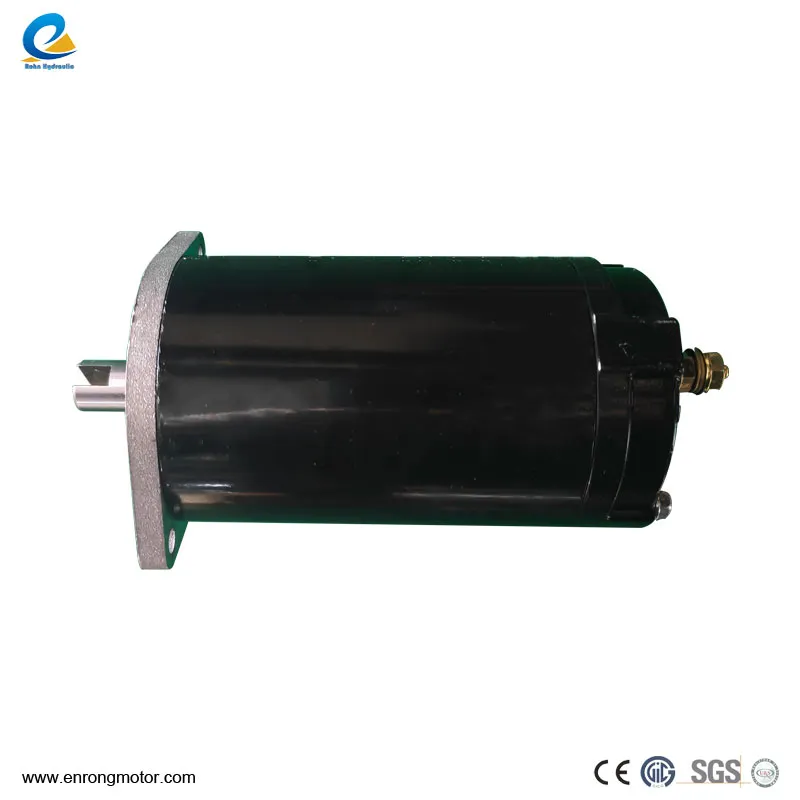DC vs. AC Hydraulic Motors – Key Differences and Applications in Industry
2024-10-25
Hydraulic systems have a unique ability to transmit powerful, consistent force, essential in heavy-duty and industrial applications. At the heart of these systems, DC and AC hydraulic motors are two types of electric motors that cater to different requirements. In this blog, we will examine the purpose of DC hydraulic motors, how they function, and the distinctions between DC and AC hydraulic motors to clarify their roles in industrial settings.
What Are DC Hydraulic Motors and How Do They Work?
DC hydraulic motors are electric motors powered by direct current, transforming this electrical energy into mechanical force. When DC power is supplied to the motor, it initiates a process where the electric current interacts with a magnetic field in the motor’s windings, creating a rotational force. This rotational energy activates a hydraulic pump, which then moves pressurized fluid through the system to power different components.
Types of Applications Using DC Hydraulic Motors
DC hydraulic motors are primarily found in settings where power flexibility is critical, especially in mobile or off-grid applications. They’re often used in construction vehicles, agricultural equipment, emergency lifts, and other machines where battery power or a portable generator is needed. This versatility allows them to operate effectively in remote locations, making DC hydraulic motors indispensable in heavy machinery, emergency systems, and industrial automation.
Comparing DC and AC Hydraulic Motors
1. Power Sources and Application Types
- DC Motors: Powered by batteries or direct current sources, DC motors offer the advantage of portability, essential for mobile equipment.
- AC Motors: Typically run on alternating current from the grid, AC motors are ideal for fixed, high-power, and continuous operation applications like conveyor belts, stationary industrial pumps, and HVAC systems.
2. Torque Production and Control
- DC Motors: These motors are ideal for generating high torque at lower speeds, which is advantageous for applications that require slow, powerful movements.
- AC Motors: While AC motors perform well in terms of steady speed, they’re generally less efficient at producing high torque at low speeds.
3. Construction and Maintenance
- DC Motors: Contain brushes and commutators, which require periodic maintenance, as these parts wear out over time.
- AC Motors: Brushless by design, AC motors are typically simpler and require less maintenance, making them a practical choice for high-usage and continuous operations.
4. Cost and Complexity
- DC Motors: Tend to be more costly due to the intricate design and the need for additional control components. Their need for regular maintenance also adds to the operational costs.
- AC Motors: More affordable in terms of upfront costs and simpler in construction, AC motors are often preferred for applications where cost-efficiency and long-term usage are priorities.
5. Speed Control and Versatility
- DC Motors: Easier to manage and control in terms of speed adjustment, DC motors are highly suitable for applications that need precise control, such as medical equipment and automated machinery.
- AC Motors: While adjustable with frequency drives, AC motors are less intuitive to control compared to DC motors, especially for applications requiring rapid speed changes.
6. Durability in Harsh Conditions
- DC Motors: These motors are designed to handle rugged conditions well but require frequent maintenance due to their brush components.
- AC Motors: Durable and often capable of handling high levels of vibration and heat, AC motors are highly suitable for harsh industrial environments.
When to Choose DC vs. AC Hydraulic Motors
- Choose DC Hydraulic Motors if you need mobile power, high torque at low speeds, and speed control flexibility.
- Choose AC Hydraulic Motors for stationary equipment, where you require reliable, continuous power with minimal maintenance needs.
Both DC and AC hydraulic motors are essential in various industries but cater to distinct needs. DC hydraulic motors provide unmatched flexibility, portability, and torque control, perfect for applications that require power on-the-go. AC hydraulic motors, on the other hand, offer simplicity, cost-efficiency, and durability for fixed installations. Understanding the fundamental differences helps in choosing the right motor to match operational demands, ensuring optimal performance and longevity in hydraulic systems.



